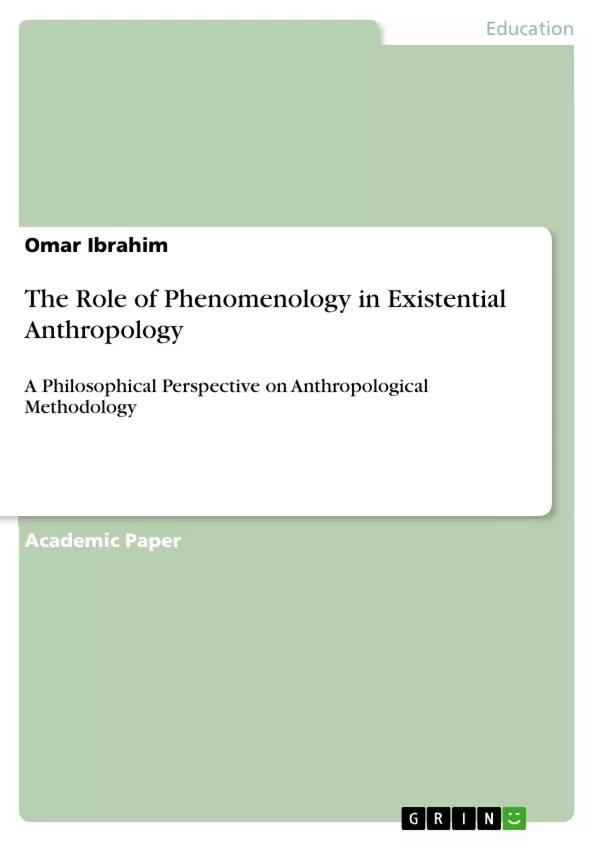The present essay explores the question of how philosophical phenomenology can be integrated into anthropology and especially into existential anthropology. Phenomenology will be analyzed in terms of its methods and demands in order to apply them to the field of Existential Anthropology. In doing so, some points have to be changed, which are necessary for the philosophical as well as for the anthropological perspective.
Philosophical phenomenology is a discipline which can be examined in terms of its tradition, its method, and its demands. There is little point in dealing with the tradition here. This is due to two reasons: First, some positions of the phenomenological thinkers will be introduced in the following chapters anyway. An overview of the entire tradition, however, would lead too far away from the topic. Secondly, philosophical phenomenology must be distinguished from existentialism. Not all phenomenologists, such as Scheler or Merleau-Ponty, for example, have dealt with existentialism. And not all existentialists, such as De Beauvoir or Camus, have dealt with phenomenology.
Inhaltsverzeichnis (Table of Contents)
- Introduction
- The Method of Phenomenology
- Prejudices and Horizons
- Static and Genetic Phenomenology
- The Demands of Phenomenology
- Experience and Dialogical Practice
- Existence and the Everyday
- Criticism of Phenomenology and Existentialism
- Concluding Remarks
Zielsetzung und Themenschwerpunkte (Objectives and Key Themes)
This paper aims to explore the application of philosophical phenomenology as a method and a demand within Existential Anthropology. The paper analyzes this topic from a philosophical perspective, drawing upon examples for illustrative purposes only. The focus is on the theoretical aspects of applying philosophical phenomenology within Existential Anthropology, emphasizing its potential to enrich this anthropological school.
- The application of philosophical phenomenology in Existential Anthropology
- The method of philosophical phenomenology, including its prejudices and horizons
- The demands of philosophical phenomenology, such as the importance of experience and dialogical practice
- Points of criticism regarding the integration of phenomenology and existentialism
- The potential benefits of incorporating philosophical phenomenology into Existential Anthropology
Zusammenfassung der Kapitel (Chapter Summaries)
- Chapter 2: The Method of Phenomenology: This chapter discusses the method of philosophical phenomenology, focusing on the importance of examining lived experience. It explores the concept of 'prejudices and horizons' in phenomenological research, emphasizing the need to avoid preconceived opinions and biases. The chapter also delves into the distinction between 'static' and 'genetic' phenomenology and its relevance to the study of life.
- Chapter 3: The Demands of Phenomenology: This chapter explores the specific demands of philosophical phenomenology as a method. It emphasizes the crucial role of experience and dialogical practice in understanding the lived world. The chapter also examines the connection between 'existence' and 'the everyday' within the framework of phenomenology.
Schlüsselwörter (Keywords)
This paper focuses on the intersection of Existential Anthropology and philosophical phenomenology. Key concepts include lived experience, prejudices and horizons, static and genetic phenomenology, experience and dialogical practice, existence and the everyday, and the methodological demands of phenomenology within an anthropological context.
- Arbeit zitieren
- Omar Ibrahim (Autor:in), 2020, The Role of Phenomenology in Existential Anthropology, München, GRIN Verlag, https://www.hausarbeiten.de/document/583478


